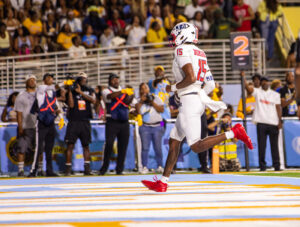Chicago Police Department officials on Wednesday said that an officer who was investigated by the department for affiliating with a white nationalist organization and found to have given false statements about it will serve a 120-day suspension beginning next month.
The decision by Superintendent David Brown comes in the wake of a recommendation from the city inspector general that Brown set aside the suspension and instead review the case and consider firing the officer.
Advertisement
The department did not offer an explanation for the decision or how Brown reached it.
According to documents released to the Tribune by the city’s Office of Inspector General in an opens records request, the internal Chicago police investigation into Officer Robert Bakker’s alleged affiliation with the Proud Boys included allegations that over several months in 2019 he associated with members of the white nationalist organization and posted messages in a group chat, including about meeting at a pub, and was also involved in exchanges about a “patriot barbecue.”
Advertisement
Inspector General Deborah Witzburg went public in recent days with her recommendation that Brown review the case and consider whether separation is a better option for Bakker, who was found to have given false statements when asked about his links to the Proud Boys, which has been designated a hate group by the Southern Poverty Law Center.
Witzburg had made her recommendation for a review public in a published report last week and again Tuesday morning, when she offered remarks at a city budget hearing and was asked by an alderman about the controversial case, which has been subject to two internal investigations and concluded with a mediation process with the officer and the 120-day suspension.
“We sent Superintendent Brown a letter encouraging him to examine the mediation agreement before approving it in light of the department’s findings that the member has made false and contradictory statements about his membership in a hate group,” Witzburg said at the hearing. “The superintendent approved the mediation agreement and finalized a suspension of 120 days for that member.”
On Tuesday, the department said the case was under review, while Mayor Lori Lightfoot defended the investigation.
“Obviously, that case was thoroughly investigated, I think not once, but twice,” Lightfoot said. “That officer was given a lengthy period of suspension. I don’t get into the details of that. But I think it’s about accountability. … I think the Police Department took the steps that the evidence that was gathered through the course of the two investigations warranted.”
When asked by a reporter how Chicagoans can trust the police to keep them safe if the department does not fire an officer who has lied to investigators about his ties to an “antisemitic, anti-gay far-right group” with leaders who have “been charged with sedition in connection with Jan. 6 insurrection,” the mayor called the characterization overstated.
“Well, I think you overstate it,” Lightfoot responded.
Had Brown decided to seek separation, the case would be sent to the Chicago Police Board, which holds public evidentiary hearings on the most serious police misconduct cases.
Advertisement
Attempts by the Tribune to reach Bakker were unsuccessful.
The Southern Poverty Law Center notes that members of the Proud Boys were present with other hate groups at a 2017 white supremacist rally in Charlottesville, Virginia, that led to the death of a 32-year-old woman.
In June 2022, the Department of Justice announced that a federal grand jury in the District of Columbia returned an indictment charging five members of the Proud Boys, including the group’s former national chairman, with seditious conspiracy and other charges for their actions before and during the breach of the U.S. Capitol on Jan. 6, 2021.
The officer’s association with such a group in a city with a documented history of civil rights abuses by police and at a time when trust with police in communities of color remains low has drawn criticism.
Ald. Andre Vasquez, 40th, who asked Witzburg about the situation at the budget hearing, indicated that he would be seeking answers from Brown and the department, given the “problem we currently have had in Chicago as far as racial profiling the way police treat people of color.”
Advertisement
“The fact that somebody would get suspended for 120 days for something of that matter is just something I want on record before we talk to CPD and the superintendent,” he said.
Bakker is assigned to the Central District downtown. The city of Chicago employee data portal lists one Robert Bakker, who is listed as a police officer with a salary of $95,500.
The allegations against Bakker are contained in two letters that the inspector general’s office sent to Chicago police officials, one in November 2020 and another just last month, in attempts to encourage them to take a closer look at the evidence they’d collected against Bakker.
The letters were released to the Tribune late Tuesday as part of an opens records request.
According to the 2020 letter from the inspector general, the first investigation by the department’s bureau of internal affairs examined several allegations against Bakker, including that he failed to tell his bosses that he was interviewed by the FBI about his involvement with the Proud Boys, that he had associated with individuals with felony or misdemeanor convictions and that he associated with members of the Proud Boys, “an organization labeled by the Federal Bureau of Investigation as an antisemitic White Supremacy organization.”
Investigators only sustained the allegation that Bakker failed to report the interview with the FBI. The letter states that internal affairs explained its conclusions by saying that Bakker “denied any involvement with the Proud Boys organization and (the internal affairs investigator) with the available resources could not obtain any verifiable evidence to disprove his statement.”
Advertisement
But the Office of Inspector General sent a letter to the chief of internal affairs to review evidence to see if more allegations could have been proven.
“OIG recommends the investigation be reopened to fully account for all available evidence,” reads the letter released to the Tribune.
The letter contains details about the investigation and Bakker’s alleged statements and notes “the evidence suggests that Bakker may have made inconsistent statements to the BIA and the FBI and includes text messages between Bakker and members of the Proud Boys.”
According to the letter, evidence in the case showed that Bakker commented at least six times on a message group titled “Fxxx Antifa.” He allegedly told investigators that he attended discussions with the Proud Boys. The investigators also had screen shots of messages from the group showing that Bakker posted about meeting at a North Side pub and was part of another message string that included an invitation to the “2nd annual Chicago PB’s Patriot Picnic.”
Bakker also allegedly told internal affairs investigators that he knew he was associating with individuals who had histories of violence and links to the Proud Boys, the letter states. He said that one of the individuals he associated with was known to be a “violent guy” who was into “dark stuff like White Supremacy,” according to the letter.
Advertisement
Internal affairs agreed to reexamine the case, and in its second review concluded that Bakker made “a contradicting statement during (an) audio recorded statement” regarding his participation in a group chat with members of the Proud Boys and made “a false statement” during the course of BIA’s investigation when asked if he attended a Proud Boys-sponsored barbecue, according to Witzburg’s public report released last week on the matter.
Internal affairs resolved the case in April 2022 with a mediation agreement. Per the agreement, Bakker agreed he would not contest any of the allegations against him in exchange for the 120-day suspension.
Such agreements are generally binding — unless the superintendent reviews the cases to consider separation.
On Sept. 12 Witzburg’s office sent the department a request to review the case again, this time directly to Brown.
“Even in the presence of a mediation agreement, you may seek separation of a CPD member,” the letter reads. “In your consideration of Bakker’s mediation agreement, OIG recommends that you review the evidence collected by BIA during its original and reopened investigations with respect to Bakker’s association with the Proud Boys.”
The letter also noted the findings that Bakker had lied, a highly problematic conclusion in a profession that relies on sworn testimony of officers to secure arrests and convictions of people. Such allegations typically result in a Rule 14 violation, according to Witzburg’s report.
Advertisement
In this case, Rule 14 was not filed against the officer, and Witzburg, in her letter, encouraged Brown to consider it, quoting directly from a letter Brown himself had written to the Civilian Office of Police Accountability in an unrelated case.
“Since approximately 2008, CPD has sought the separation of officers with sustained Rule 14 violations,” Brown wrote, according to the letter, “because such a violation impairs an officer’s ability to testify in criminal cases, to effectuate arrests, hinders an officer from signing affidavits in support of search warrants and participating in joint federal task forces.”
Witzburg never got a response from Brown.
“The Superintendent did not respond to OIG’s further communication,” her quarterly report, released Friday, reads. “According to CPD’s case management system, the Superintendent concurred with BIA’s findings and approved the 120-day suspension agreed upon by the CPD member and the Department during the mediation process.”
Afternoon Briefing
Daily
Chicago Tribune editors’ top story picks, delivered to your inbox each afternoon.
Georgetown Law professor Vida Johnson said the allegations against the officer demanded not only consideration of separation, but a swift decision.
“Keeping him on the force sends a message to the community, particularly to people of color, women and noncitizens, that they are less than,” said Johnson, who has studied extremism in policing. “If I were the police chief, that is the thing I would be really worried about.”
Advertisement
Johnson said there is also worry that officers who are involved with such groups can influence other officers, which is why addressing the problem quickly is key.
“I think having even one officer who holds those values and views is extremely damaging,” she said.
Johnson said departments that discover officers who have affiliation with hate groups should do more than just examine the individual officer’s violations. They should also do a “deep dive” into their activity both inside the department on the street, given the authority they have.
Just last week a prosecutor in Massachusetts announced she would be reviewing both open and closed cases involving an officer who is alleged to have participated in and helped plan the Charlottesville rally.
“We are acutely aware of the way in which these allegations tear at the fabric of trust, which exists between communities and the police departments which serve them,” reads a statement that was posted on the Middlesex district attorney’s office on Oct. 14.







